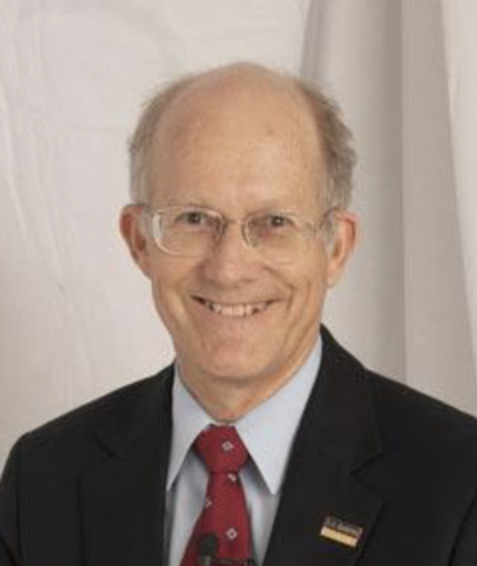
| Kenneth Burtis, Ph.D., UC Davis Ken Burtis is a Professor Emeritus of Molecular and Cellular Biology, and Dean Emeritus, College of Biological Sciences at UC Davis. Prior to his appointment as the first dean of the College of Biological Sciences, he served as chair of the Genetics Graduate Group, vice-chair of the Department of Molecular and Cellular Biology, associate director of the UC Davis Genome Center, and associate dean for Undergraduate Academic Programs in the College of Biological Sciences. His affiliation with UC Davis biology spanned almost four decades, as a student, staff member, professor and administrator. Burtis’ research interest focuses on DNA repair in Drosophila, specifically, the molecular basis of interstrand crosslink repair. He is a member of the Genetics Society of America. During his distinguished career at UC Davis, Ken Burtis served as interim provost and executive vice chancellor, and as faculty advisor to the chancellor and provost at UC Davis. He coordinated the planning process for the 2020 Initiative, under which the university grew its enrollment by about 5,000; he also organized and coordinated development of Chancellor Gary S. May’s 10-year strategic plan, “To Boldly Go.” Burtis was UC Davis’ representative on the governing board of the California Institute for Regenerative Medicine (CIRM) as a member and alternate member. He has made essential contributions to the Healthy Davis Together program since his retirement in 2020, program that provided COVID-19 testing to the UC Davis community, the city of Davis, and other parts of Yolo County. He continues to serve as a volunteer Advisor to the Director of the Office of Wellness Education at the UC Davis School of Medicine. Burtis earned his bachelor’s degree in biochemistry and biophysics from UC Davis, and his Ph.D. in biochemistry from Stanford University. |

| Paul Dodd, Ph.D., UC Davis Paul Dodd rejoined UC Davis full time in January 2024 in a new role of Associate Vice Chancellor, Grand Challenges. His focus in this role is to ensure UC Davis’ research is making the greatest positive impact on global problems. The Grand Challenges team brings together experts from across disciplines – connecting the community around solution-oriented work, ensuring the participation of underrepresented people and disciplines, organizing product-centered strategic convenings including company and government partners, and facilitates the creation of new campus-wide teams and ventures. Dodd leads efforts in the Emerging Health Threats and Climate Solutions challenges, and actively supports the Sustainable Food Systems and Reimagining the Public Land-Grant University challenges. Previously Dodd held the position of Vice President, Engagement at University of Galway from 2022-2024 – leading a team of over 30 professionals, he was a member of the University Management Team and had executive responsibility for a number of university-wide functions including Development, Marketing and Communications, and Community and Industry engagement. During this time, he also supported UC Davis with European university research partnerships on a part-time basis. From 2012-2022 he served as Associate Vice Chancellor for Interdisciplinary Research and Strategic Initiatives at UC Davis, supporting over 20 interdisciplinary research centers and institutes, and leading campus efforts in research development helping to drive a 50% increase in research revenue in less than a decade. Prior to UC Davis, Dodd was director of the Industry Collaborative Programs at Science Foundation Ireland (SFI) where he was responsible for large-scale collaborative research centers and clusters in Information and Communication Technologies, Life Sciences and Renewable Energy. In 2009-10, Dodd worked in the Silicon Valley with the Irish government’s enterprise development agency. His role was to develop research links between industry in the United States and academic research groups and centers in Ireland. Dodd holds B.A. and M.Sc. degrees in materials science from Trinity College Dublin and a Ph.D. in physics from Queen’s University Belfast for research on nanoscale magnetic materials and devices with applications in magnetic recording head technologies. |
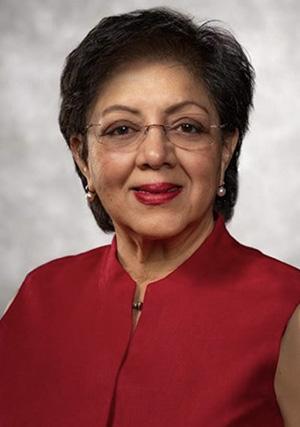
| Ranu Jung, Ph.D., University of Arkansas Ranu Jung is the Associate Vice Chancellor – Research & Innovation, Founding Executive Director and Endowed Chair of the Institute for Integrative and Innovative Research (I3R), and Distinguished Professor of Biomedical Engineering at University of Arkansas. A renowned researcher and innovator, Jung was selected in 2021 to lead the founding of the Institute for Integrative and Innovative Research - a new model of research institute distinguished by a dual mandate to advance research excellence and impact economic development. Under Jung’s leadership, I³R is boldly pioneering solutions to wicked problems through convergence research across academic, industry, government, non-profit, and philanthropic sectors ultimately making a positive societal impact by creating and deploying innovations at scale. Convergence also plays a prominent role in Jung’s research, which is at the leading edge between engineering and neuroscience, developing devices that lead to scientific advances with clear pathways to clinical application. Of special interest to her are biohybrid systems that merge biologically inspired technologies with humans for recovery and restoration of lost function. A champion for innovation and entrepreneurship her team developed the first wireless, implantable, intrafascicular neural-interface system for restoring sensations to individuals with upper limb amputation and received FDA approval to conduct a first-in-human trial. Holder of 18 U.S. patents, founder of one R&D Company, Jung is a Fellow of the American Association for the Advancement of Science, the National Academy of Inventors, the American Institute for Medical and Biological Engineering, the Biomedical Engineering Society and member of the International Women’s Forum. A foremost thought leader and expert in her field, Jung has chaired or served on advisory and review committees for the National Advisory Council for Biomedical Imaging and Bioengineering for the US National Institutes of Health, the US National Science Foundation, European Research Commission, and international and national research foundations. Jung received her Doctoral and Master’s degrees in Biomedical Engineering from Case Western Reserve University, USA and her Bachelors with Distinction, in Electronics & Communication Engineering from National Institute of Technology, Warangal, India. |
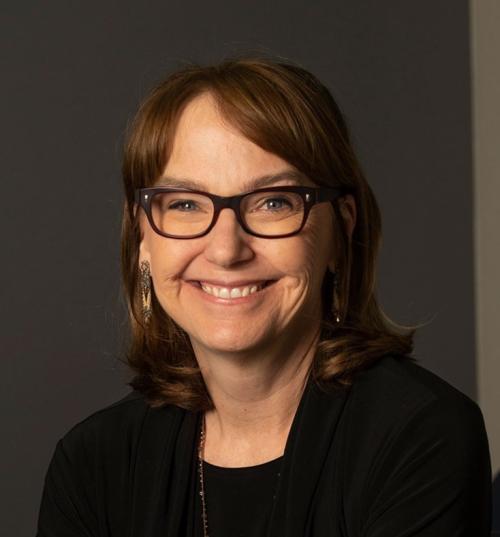
| Kimberley McAllister, Ph.D., Wake Forest University Kimberley McAllister is Vice Provost for Research, Scholarly Inquiry, and Creative Activity at Wake Forest University, Professor of Biology and Translational Neurosciences at Wake Forest School of Medicine, and Professor and Director Emerita of the Center for Neuroscience at UC Davis. As Vice Provost for Research, Scholarly Inquiry, and Creative Activity, McAllister provides strategic leadership and vision during Wake Forest’s exciting new phase of continued growth of its research enterprise. She supports research within Wake Forest’s teacher-scholar model, aligns research priorities with the University’s academic mission and strategic framework, strengthens research infrastructure and compliance, and identifies opportunities for collaboration within and beyond the University. McAllister has spent nearly 25 years at UC Davis, providing extensive service and leadership. As director of the Center for Neuroscience, she has overseen dramatic growth in research funding, philanthropic support, and interdisciplinary initiatives. Her research, continuously funded by the NIH for more than 20 years, has made seminal contributions to our understanding of the mechanisms of both synapse formation in the developing brain and synapse loss in Alzheimer’s disease. She has also been a pioneer in the field of neuroimmunology, identifying new roles for classical immune molecules at synapses in neurons and mediating the effects of maternal infection in predisposing offspring to autism and schizophrenia. In parallel to her basic research in neuroimmunology, McAllister also worked in translational neuroscience through leading a multi-disciplinary collaboration between eight groups at UC Davis, funded initially by a UC Davis RISE Pilot Center grant and transformed into an NIMH Conte Center, which was renewed for another 5 years. McAllister earned her BS in Biology from Davidson College and her PhD in Neurobiology from Duke University. Prior to joining UC Davis, she completed postdoctoral training at the Salk Institute. At UC Davis, she published over 80 manuscripts and chapters, was awarded 25 grants, and trained 10 graduate students, 13 postdocs and over 60 undergraduate researchers. McAllister is also the recipient of numerous awards and honors and is a highly sought-after speaker and scientific advisor. |
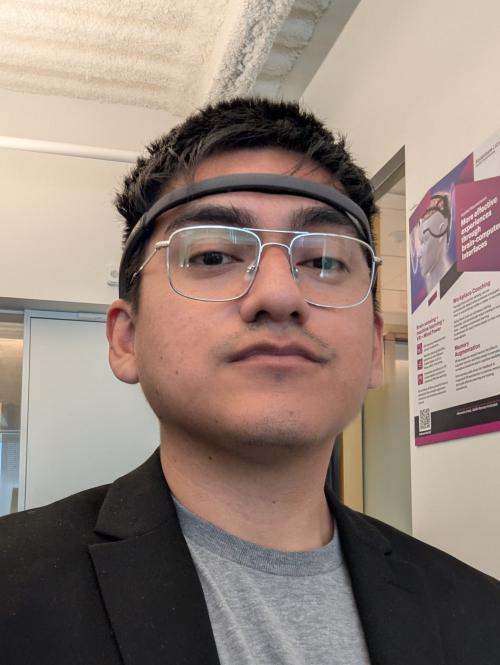
| Adolfo Ramirez-Aristizabal, Ph.D., Accenture Labs Adolfo G. Ramirez-Aristizabal is a Principal R&D Researcher in Accenture Labs, where his work is at the forefront of applying novel human data streams to AI systems for addressing complex business and industrial challenges. He leads the Generative AI x Bio-Sensing research initiative, managing university collaborations, business partnerships, and the creation of IP under this umbrella. Ramirez works as tech lead for innovation client projects at the intersection of GenAI, neurotech, bio-sensing, and human-robot interaction (HRI), tackling use cases such as the Future of Work and Product & Content Design. His client delivery services role spans from tech solution delivery and Art-of-the-Possible demonstrations to C-Suite at trade shows. Such projects span the gamut, from improving LLM reasoning capabilities to using neurotech to understand and enable new user experiences. His current work is focused on how novel AI can help scale proof-of-concepts in neuroscience towards applied solutions. Ramirez received his PhD in Cognitive & Information Sciences from the University of California Merced in 2022. |
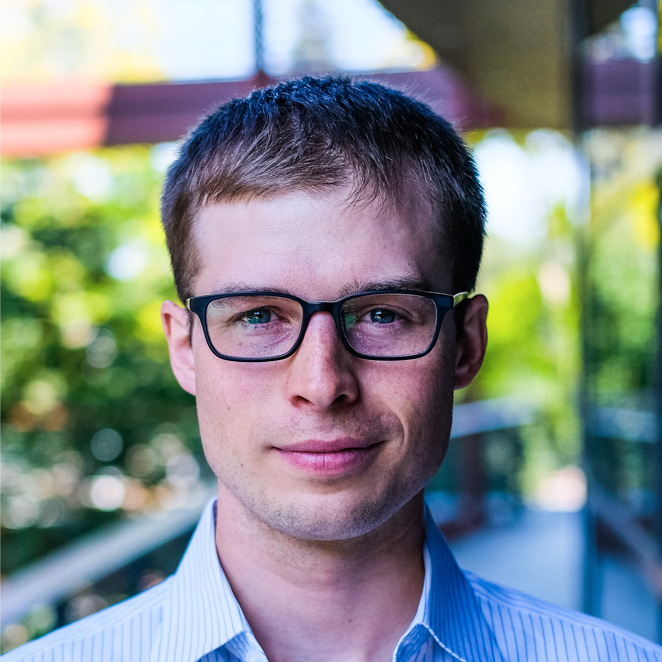
| Eric Trautmann, Ph.D., Meta Reality Labs & UC Davis Eric Trautmann is a research scientist at Meta Reality Labs working on noninvasive electromyographic interfaces for augmented reality and virtual reality. He also serves as an adjunct professor in the department of neurological surgery at UC Davis, where he works with the UC Davis Neuroprosthetics Lab to develop tools and techniques that enable brain-wide recording with single-cell resolution for clinical use. In addition, his scientific work focuses on using these tools to investigate how numerous brain regions coordinate to perform neural computations underlying complex cognition and motor control. Collectively, this work aims to facilitate the development of brain-computer interfaces for the diagnosis and treatment of a variety of neurological disorders and diseases. Trautmann received an MS degree in Machine Learning and Robotics from Dartmouth College and a PhD in Neuroscience from Stanford University School of Medicine, followed by an HHMI Postdoc at Stanford University and a Postdoctoral Research position at Columbia’s Mortimer B. Zuckerman Mind Brain and Behavior Institute. |
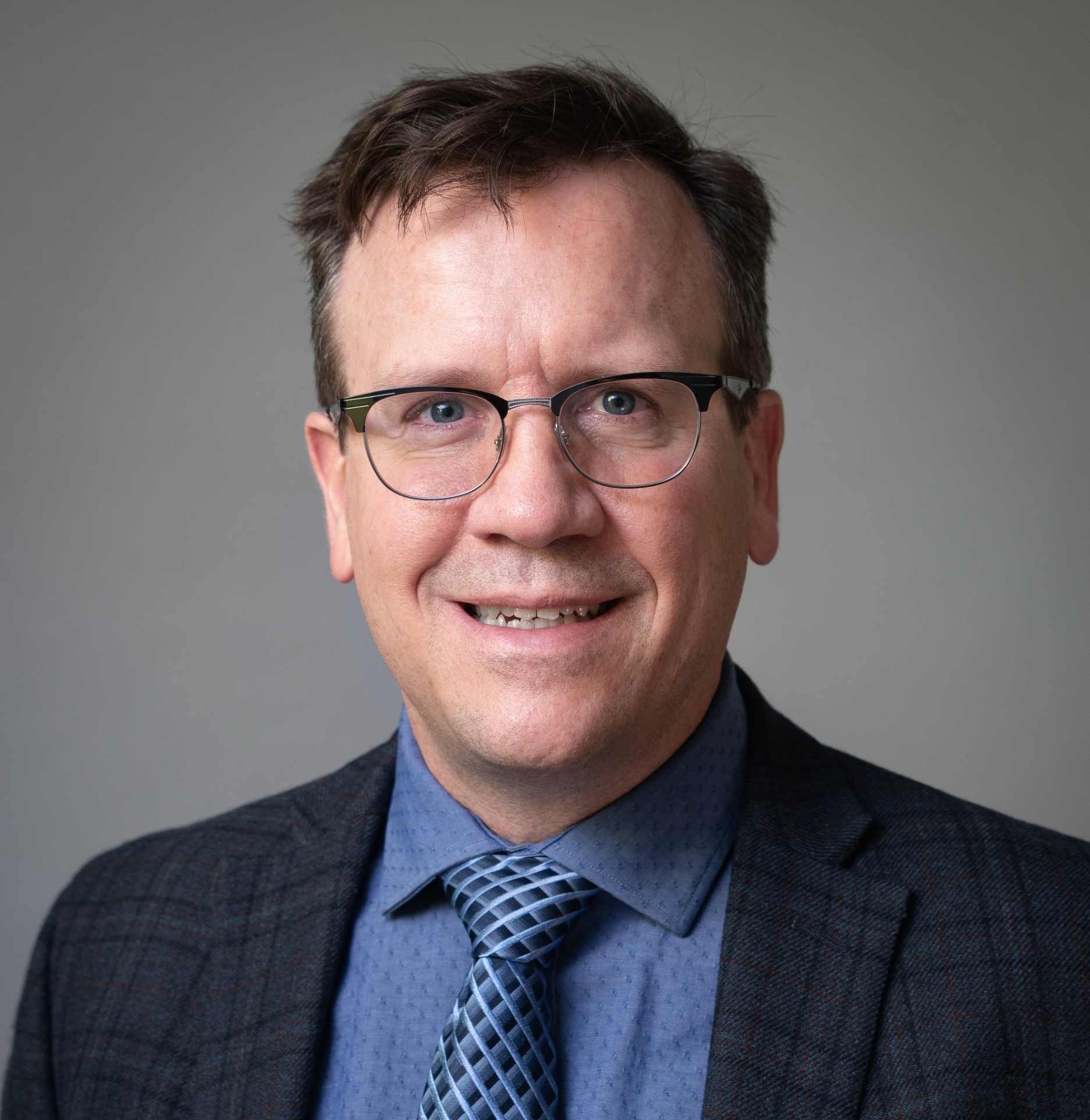
| Douglas Weber, Ph.D., Carnegie Mellon University Doug Weber is the Akhtar and Bhutta Professor of Mechanical Engineering and Neuroscience at Carnegie Mellon University. His primary research area is Neural Engineering, combining fundamental neuroscience and medical device engineering to understand the neural basis of sensory perception, motor control, and neuroplasticity and drive the development of neurotechnologies for restoring sensorimotor functions in patients after stroke, spinal cord injury, or limb loss. These principles are also being applied to develop wearable devices for enhancing sensory, motor, and cognitive functions in healthy humans. He is committed to transitioning the outputs of his academic research into practical technologies that support real-world applications, and he works actively with industrial partners to bridge the gap from bench to market. A founding member of DARPA’s Biological Technologies Office, Weber created and managed a portfolio of neurotechnology research programs to support the White House BRAIN initiative. He created DARPA’s Hand Proprioception and Touch Interfaces (HAPTIX), Electrical Prescriptions (ElectRx), and Targeted Neuroplasticity Training (TNT) programs, which are developing implantable, injectable, and wearable neurotechnologies that restore natural motor and sensory functions for amputees, enable novel and drug-free therapies for treating inflammatory disease and mental health disorders, and promote plasticity in the brain to enhance learning of complex cognitive skills. At CMU, he is co-director of the Neuro-Mechatronics Laboratory, which is a highly multidisciplinary group of students, post-docs and faculty working on projects spanning fundamental and applied studies in animals and translational research in humans. He holds 12 issued patents and is a co-founder and Chief Technology Officer of Reach Neuro, Inc., a Pittsburgh-based startup that is developing a novel neuromodulation therapy for stroke rehabilitation. Doug Weber is an elected fellow of the American Institute for Medical and Biological Engineering (AIMBE), a Senior Member of the Institute of Electrical and Electronics Engineers (IEEE), a member of the Society for Neuroscience and the American Physiological Society. He received a Ph.D. in Bioengineering from Arizona State University and completed post-doctoral training in the Centre for Neuroscience at the University of Alberta. |
